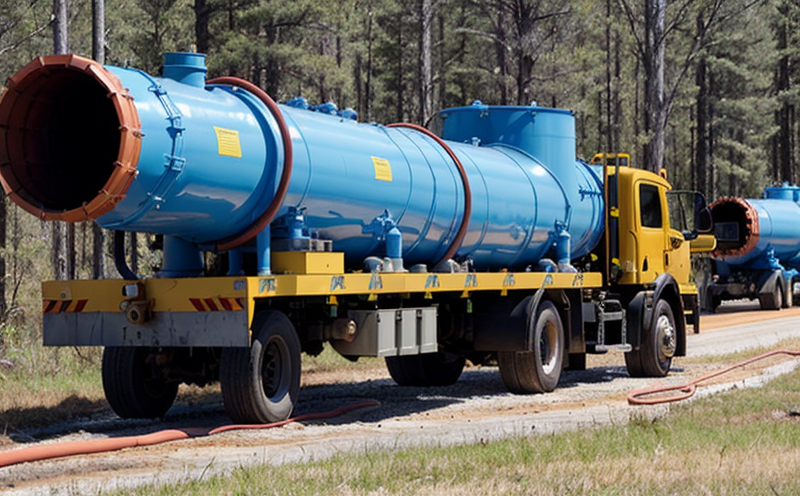API 1160 Integrity Management Testing for Natural Gas Pipelines
The integrity of natural gas pipelines is critical to ensure safe and reliable distribution. The American Petroleum Institute (API) standard API 1160 provides a comprehensive framework for managing the integrity of these vital infrastructure systems. This service ensures that pipeline operators comply with industry best practices, regulatory requirements, and internal policies.
Our integrity testing process adheres strictly to API 1160 guidelines, covering all phases from initial assessment through monitoring and maintenance activities. The focus is on identifying potential risks early, reducing the likelihood of failures, and minimizing environmental impacts. Our team uses advanced non-destructive testing (NDT) methods such as ultrasonic testing (UT), radiography (RT), magnetic particle inspection (MPI), and eddy current testing (ECT).
Our services begin with a thorough examination of the pipeline's design documents, construction records, and operational data. This step is crucial for understanding the specific challenges faced by each segment of the pipeline network. Following this initial assessment, we conduct detailed inspections using high-resolution imaging techniques to detect any anomalies or deterioration that could compromise safety.
During these inspections, our technicians employ sophisticated NDT tools tailored to various types of joints and welds found in natural gas pipelines. For instance, UT is particularly effective for detecting internal defects within pipes, while RT excels at revealing flaws in thicker sections like elbows or reducers. MPI proves invaluable when inspecting surfaces prone to corrosion or erosion damage, whereas ECT helps assess the integrity of thinner walled components.
After completing each inspection, our experts compile comprehensive reports detailing findings and recommendations for corrective actions where necessary. These reports serve as valuable resources for decision-makers responsible for maintaining safe operating conditions. By leveraging this detailed information, pipeline owners can prioritize repairs based on risk level rather than chronological order, ensuring that resources are allocated efficiently.
Our commitment to quality extends beyond mere compliance with standards like API 1160; it also encompasses continuous improvement efforts aimed at enhancing overall performance and reliability. We stay abreast of emerging technologies and methodologies in the field of pipeline integrity management to incorporate them into our service offerings whenever appropriate.
- Thorough examination of design documents, construction records, and operational data
- Detailed inspections using advanced NDT methods including UT, RT, MPI, and ECT
- Compilation of comprehensive reports outlining findings and recommendations for corrective actions
In addition to technical excellence, our approach emphasizes collaboration with clients throughout the entire process. From project planning stages through final report delivery, we maintain open lines of communication to ensure alignment between expectations and outcomes.





